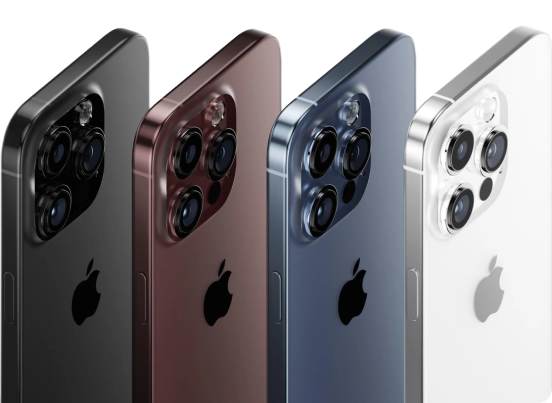With wearables rapidly evolving, the smart ring market has garnered significant attention. Oura CEO Tom Hale recently discussed why Apple might avoid entering this space, speculating that an Apple-designed smart ring could detract from the Apple Watch’s sales. As Oura and Samsung drive the innovation behind smart rings, Apple’s strategy remains focused on the established success of the Apple Watch. This article examines the reasons behind Apple’s stance and considers the future of smart rings in the wearable industry.
Why Apple May Not Enter the Smart Ring Market
Apple has long been a pioneer in wearable technology, with the Apple Watch leading the market in health and fitness tracking. According to Oura CEO Tom Hale, Apple is unlikely to develop a smart ring, as the company may see little value in pairing a ring and a watch. The Apple Watch already serves as a multifunctional device, providing health, fitness, and notification features, which could be undercut by the introduction of a similar ring.
Apple’s Concerns with Smart Ring Cannibalization
Apple’s reluctance likely stems from concerns about cannibalizing its own product sales. A smart ring could potentially divert consumers who are considering the Apple Watch, especially if the ring offered similar health-tracking capabilities at a lower price. Apple’s industrial design team did propose a lower-cost smart ring alternative, but executives reportedly dismissed the idea.
Insights from Oura and the Launch of Oura Ring 4
Oura, a well-known company in the smart ring market, recently released the Oura Ring 4, which tracks movement, fitness, health, stress, and sleep. The company’s success highlights the growing interest in non-traditional wearables that provide powerful health insights in a discreet form. Since launching its first ring in 2015, Oura has established itself as a leader in the smart ring space, filling a niche that Apple has yet to explore.
How the Oura Ring 4 Expands Health Tracking
The Oura Ring 4 has continued to build on its health-tracking capabilities, appealing to users who seek minimalistic yet effective health insights. It offers detailed sleep and stress tracking, as well as insights into overall wellness. The company’s commitment to ring-based health wearables showcases the value of compact devices that integrate seamlessly into daily life, potentially filling a gap in Apple’s product lineup.
Apple’s History with Ring Patents and the “iRing” Rumors
Over the years, Apple has filed patents for ring-like devices, spurring speculation about a potential “iRing.” These patents cover a range of functionalities, from gesture control to wearable device integrations. However, Apple’s extensive patent filings often cover concepts that never materialize, and to date, the company has not developed an iRing or smart ring for consumers.
Samsung Enters the Ring Market with Galaxy Ring
Samsung recently launched the Galaxy Ring, a wearable that tracks movement, heart rate, respiratory rate, and sleep quality, offering features similar to those of a smartwatch in a ring format. Designed to work seamlessly with Galaxy devices, it provides Samsung users with another wearable option for health insights. Samsung’s entry into the smart ring market suggests growing industry interest in these compact devices.
Potential Benefits of an Apple Smart Ring
Should consumer interest in smart rings continue to grow, Apple may eventually consider developing a ring to complement the Apple Watch. Such a device could offer Apple a competitive edge if designed as an accessory rather than a standalone alternative to the watch.
Possible Apple Smart Ring Features
- Enhanced Health Metrics: Building on Apple’s existing health capabilities, a smart ring could provide additional sensors for detailed health data.
- Seamless Integration with iOS: An Apple-designed ring would benefit from exclusive integration with iOS, potentially functioning as an extension of the Apple Watch or iPhone.
- Gesture Control: Apple’s patents suggest that a ring could be used to control Apple devices through hand gestures, offering users a hands-free experience.
Industry and Consumer Interest in Smart Rings
With Samsung and Oura’s success, the market for smart rings continues to grow, and consumer interest is rising. Smart rings appeal to users looking for discreet wearable technology that offers health insights without the bulk of a smartwatch. Should this trend continue, Apple may choose to enter the market to meet consumer demand, leveraging its ecosystem for added functionality.
Final Thoughts on Apple’s Potential in the Smart Ring Market
Apple’s cautious approach to smart rings highlights the company’s commitment to sustaining the success of the Apple Watch. While a smart ring would likely provide new features, Apple’s focus remains on its flagship wearable. However, if consumer demand continues to drive the popularity of rings like those from Oura and Samsung, Apple may eventually develop a smart ring that complements its existing products.
MacReview Verdict
While Apple may not be rushing to release a smart ring, the wearables market is evolving, and future demand could change the company’s stance. For now, Apple continues to monitor the innovations of competitors like Oura and Samsung, keeping an eye on the smart ring market’s potential. Interested in staying updated on the latest in wearable tech? Follow our blog for insights into Apple’s latest product strategies and industry trends.




